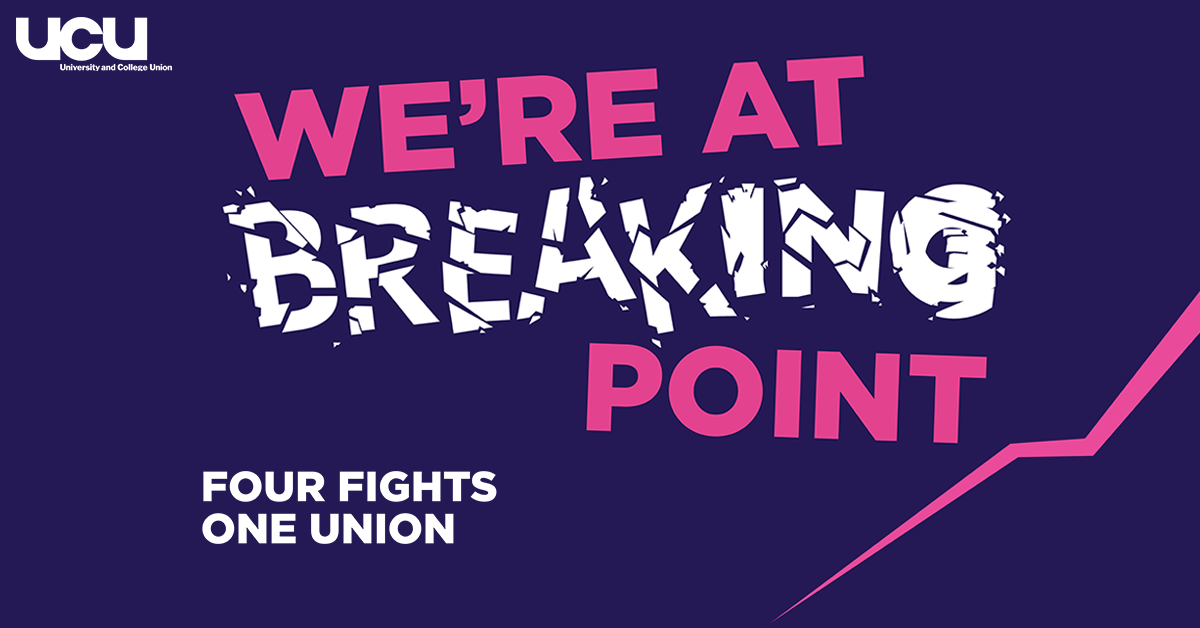Universities UK's claims and UCU's responses
16 February 2022
On Sunday, I wrote to all members about Universities UK's misrepresentation of UCU's USS proposals. I want to thank all the branches and individual members for feeding back to me on what their vice-chancellors have been telling them.
Universities UK (UUK) has now dropped their factually incorrect claim about UCU's proposals for USS, specifically that it would see employer contributions increasing to more than 25.2%. However UUK has continued to make a number of claims.
Branches have been urged, if they have not done so already, to request urgent meetings with vice-chancellors and senior management teams to discuss UCU's proposals and clear up any misunderstandings.
We've set out the main rebuttals to the continued claims below.
UUK claim 1: UCU has not clarified aspects of their proposals until very recently, in some respects as recently as 11 February.
UCU response: Our proposals have been very clear to UUK since 26 January and could have formed the basis of a formal consultation of employers by UUK before now.
UUK claim 2: UUK does not have the benefit of The Pensions Regulator's (TPR) view or position on UCU's counter-proposals.
UCU response: Since UCU's counter-proposals involve reverting to the backstop schedule of contributions which USS has already filed and TPR has not taken any action over, it is not clear why TPR would need to get involved.
UUK claim 3: This is the first time that UCU has tabled a formal set of proposals.
UCU response: In August 2021, UCU tabled proposals that would have protected benefits and averted December's industrial action, but UUK refused to provide the same level of covenant support, in other words agreeing to underwrite UCU's proposals to the same extent as their own. Employers then forced through their own proposals through the joint negotiating committee (JNC).
UUK claim 4: It makes no sense that UCU has waited until this late in the process to table a relatively straightforward set of proposals.
UCU response: The reason why UCU waited to table these proposals was because UCU wanted them to be thoroughly informed by the consultation of USS members on employers' benefits cuts. This consultation, which was run by the employers themselves, only closed in January 2022.
That consultation indicated a very strong preference among USS members for employers and members to pay more to protect current benefits as much as possible. This is why UCU's counter-proposals are based on that premise. By allowing our position to be informed by the consultation, UCU is upholding its commitment to represent and act in the interest of USS members.
UUK claim 5: UUK now accepts that UCU is not proposing that employers to eventually pay more than 25.2%. But no matter what UCU says, that is what the backstop schedule of contributions which UCU is asking UUK to revert to will require. It is not clear what the legal basis would be of UCU's proposed agreement that employers will pay no more than 25.2%.
UCU response: In UCU's February 2022 briefing paper, 'UCU proposals for securing the future of USS following the 2020 valuation' (pp.5-6), UCU has already set out a viable mechanism. Simply put, UUK can unilaterally ensure that the 25.2% rate will apply from April 2023, simply by tabling a proposal to that effect.
Please also refer to the explanatory blog, written by Michael Otsuka (one of UCU's USS alternate negotiators), entitled 'A simple means of ensuring that rates are capped at 25.2% and 9.8% from 1 April 2023' (dated 15 February 2022).
UUK claim 6: The UCU proposals would cause a spike in opt-outs and price many members out of USS. UCU has not presented a solution for the affordability problem that has caused the current opt-out rate to be so high, and UCU's proposals will make it even worse.
UCU response: UUK's proposals are at least as likely to cause a spike in opt-outs, if not more so because of the drastic cuts to benefits. UCU did present employers with proposals in August 2021 that would allow USS members to choose to pay zero contributions, or half the normal contributions, in return for proportionally lower defined benefit accrual, along with other measures to address issues that affect lower-paid and precariously employed staff. USS has indicated that these flexible contribution rate proposals could be implemented soon - perhaps as early as April 2023 - if employers agreed to them. UCU would welcome a commitment from UUK to endorse these proposals, but so far UUK has been unwilling to do so.
We are also aware that some employers believe there is insufficient time to negotiate properly on UCU's counter-proposals, and therefore will give UUK the green light to cut our pensions. However, whilst there are obviously some challenges ahead with getting UCU's proposals implemented - a new valuation will take time, effort, and energy from all parties - it is my firm belief that maintaining and securing the long-term viability of our scheme, and with a benefit package that hard-working university staff deserve, is worthy of the effort.
There has been much common ground in the past between UCU and UUK about the best route forward for USS - just look at the joint expert panel (JEP) reports - and university managers now need to instruct UUK to reschedule the forthcoming meetings that will cement the cuts to our pensions, and instead negotiate with UCU over the significant common ground that exists, and chart a path for the implementation of these proposals.
I hope that these points above would help you to formulate responses to your vice-chancellors and senior managers, many of whom are uncritically reproducing UUK's claims. You may also find this blog, written by Michael Otsuka, entitled 'A rebuttal of Alistair Jarvis's reply to Jo Grady' (dated 14 February 2022), informative.
With best wishes
Jo Grady
UCU general secretary
- PrintPrint this page
- Share


